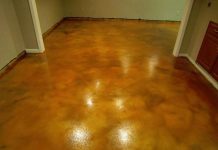In New York, tenants have certain rights protected under a document called the Warranty of Habitability.
This is an implied and legally binding list of rights that a tenant is entitled to. Normally, the rights and obligations of both tenant and landlord are outlined in the lease. But the Warranty of Habitability supersedes leasing agreements and is enforceable by law.
According to the Warranty, you as the landlord are required to provide certain amenities and services to your tenants that help them maintain their quality of life. This keeps apartments safe, sanitary, and functional, ensuring that no tenant lives without some of the vital services that humans need to function.
If you’re embroiled in a dispute over the Warranty of Habitability, it’s best to contact an experienced real estate law firm like New York’s Adam Leitman Bailey, P.C.
Amenities
New York tenants are entitled to certain basic amenities. They include heat, hot and cold running water, power, light, telephone service, and elevator service.
If you are informed by a tenant that one of these services is no longer functional in their unit, you are required by law to make the needed repairs within a reasonable amount of time. Failure to act on such matters could be seen as negligence, and your tenant could take legal action against you, up to withholding rent or suing for damages.
The Warranty of Habitability specifically points to no water, water leaks and floods, no heat, pipe problems, radiator issues, electric issues, gas leaks, bathroom problems, holes in the floor, and more.
Pest Infestation
Your tenant doesn’t want vermin and insects as roommates. As such, the Warranty of Habitability covers pest infestation. If your tenant tells you that there is an issue present, you are required to address it in a timely fashion.
As a landlord, you should already have an exterminator on file for when these issues inevitably rise up.
The Warranty of Habitability specifically mentions mice, rats, vermin, roaches, insects, and bugs.
Safety
There’s a lot that goes into making an apartment safe. The Warranty of Habitability covers a number of topics directly related to safety.
For starters, tenants need to have locks on their doors, and locks on the building in general. Windows must also be functional and intact.
Smoke detectors need to be working. If they break it is the landlord’s responsibility to replace them. The same applies for carbon monoxide detectors.
It should be noted that if the tenant tampers with smoke or carbon monoxide detectors, they could be in violation of the leasing agreement.
The presence of lead-based paint is another safety concern that the Warranty covers.
Conclusion
If your tenant alerts you to a potential violation of the Warranty of Habitability, you have to respond to it in a timely manner. Failure to do so could result in legal action. Invoking the warranty is an involved legal process. If one of your tenants has lodged a complaint against you regarding the Warranty of Habitability, then you need to contact a real estate attorney immediately.
Find a Home-Based Business to Start-Up >>> Hundreds of Business Listings.

















































